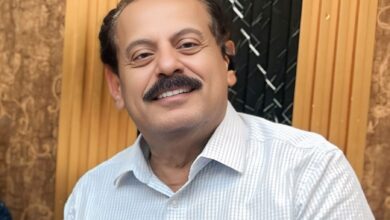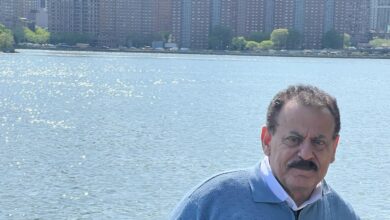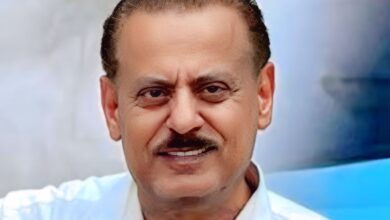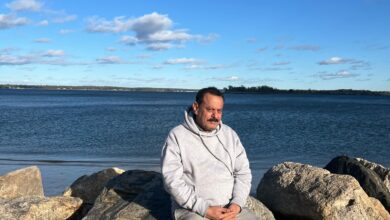The Triumph of My Conscience
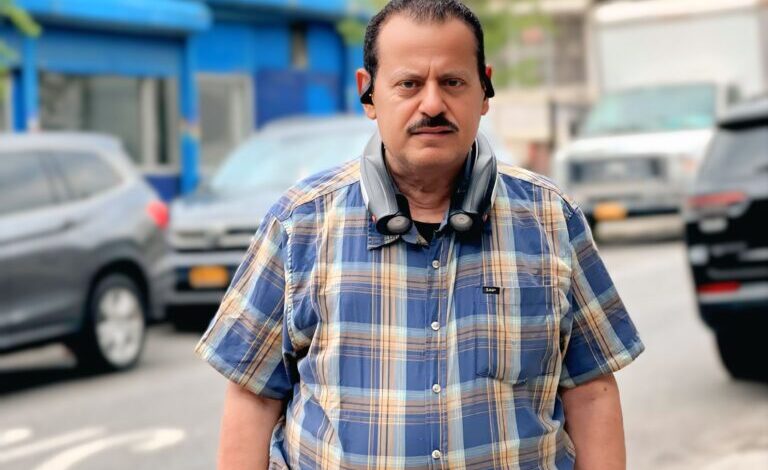
Yemeni mp
Ahmed Saif Hashed
On January 18, 1986, I witnessed detainees being dragged into an interrogation room. At first glance, their accents, dialects, and the expressions on their faces revealed them to be citizens from the Bedouin communities, specifically from the provinces of Abyan and Shabwa. I could hear their screams, ignited with the fire of pain, echoing in every direction.
I saw some interrogators wielding thick sticks, mercilessly striking certain detainees with a cruelty that often reached its peak. The door to the room was open, as was the window. It resembled a guard room, where a handful of guards might gather. Inside, there was a table and a few chairs. One of the interrogators seemed to be trying to showcase his brutality and vulgarity, reveling in his actions. I hovered nearby, stealing glances filled with fiery curiosity, living the moment of pain that lashed at the victims like a serpent. My curiosity urged me to understand more about what was unfolding, while the cries of the beaten pierced the walls like cannon fire, resonating deeply in my ears.
Their wails and screams transported me back to my childhood, to the tales my mother would tell of the severity of torment and judgment in the grave. I found myself questioning:
Are these interrogators human like us? They resemble the stern overseers of heavy judgment in the graves, as described in stories I heard as a child. It cannot be that this is the first time they engage in such acts of beating, humiliation, and degradation of victims in the interrogation room; otherwise, they would show less cruelty and more hesitation in their use of violence and torture.
My mind was flooded with questions: What drives an interrogator to abandon the bare minimum of humanity, transforming into a grotesque criminal? Why is such excessive violence employed? Assuming there are guilty parties among them, it is certain that there are also innocents who, by coincidence or ill fate, have fallen into the circle of suspicion; why are they being beaten? Everyone here should only be presumed suspicious, not even accused. Isn’t the law supposed to prohibit torture and humiliation, even if they are guilty? Why is all this happening now?
The questions continued to flood my mind: Is it failure and helplessness? Is it a pathological inferiority complex that the interrogator seeks to fulfill in order to appear complete? Is it ideology, applying its weight on minds or wreaking havoc in empty heads? And where? And against whom? Is it the disease of “sadism” that has taken root and become a fixation within the souls of interrogators who seem to have become addicted to it? These are the most pressing and painful questions.
The scenes I witnessed were shocking, unexpected, and devastating to my grand dreams. They clashed violently with my ideals and the principles I believed I held dear. They were humiliating to my lofty hopes and some convictions that had previously been ignorant of the horrors occurring in the depths of detention centers, interrogation rooms, and the shadows of politics. Perhaps it was I who had failed to grasp the truth or to seek it out, to discover the tragic realities and suffering that were unfolding. I saw life in its ugliness as better than it truly was. I never imagined I would witness such scenes and events that had never crossed my mind, nor did I think I would confront them in broad daylight.
In the best of cases, one might offer the interrogators an unacceptable excuse, such as claiming they were seeking quick confessions that might be necessary at the time. However, the accumulation of what I saw and heard later led me to a certainty that shattered all excuses.
The impact of the beatings and violence inflicted by the interrogators upon some detainees brought to mind a documentary I could never forget: “The Crimes of the American CIA.” I had watched it at the “Dar Saad” cinema while studying in high school at “Proletariat School.” It depicted, in vivid sound and image, horrific violations of human rights against activists, politicians, and resistors of dictatorial regimes in Latin America, Central America, and the Maghreb. While watching the film, I felt that death for the tortured detainee had become a distant wish. Now, I was witnessing live torture with my own eyes, even if it was not at the same level. I heard the cries of torture without any intermediary or portrayal, and what was happening today was even worse than hell itself.
On that same day—January 18, 1986—one of the interrogators offered me the chance to participate in the investigation after learning I was studying law. I refused his offer and thought to myself: Oh God, is this possible?! I, who dream of justice for all, am to become a great and ruthless criminal. I want to be a judge or a lawyer, and he wants to turn me into an executioner. I must leave this hideous place and never return. My conscience needed to be free from pain and remorse. It was a bitter struggle with my conscience, and now it was time for it to rest.
I went to meet with the leadership, aided by my friend Hakim. The leadership was based in the post office building. One of them was a young man from Yafea, working as the director of an economic institution, while the other was a military leader. I requested permission to leave, wanting to surrender my weapon. My friend awaited approval to take my weapon and ammunition, which indeed happened, and I returned home without arms or ammunition. No one had done this before, and I had never heard of anyone victorious surrendering their weapon and returning home.
Yes, on that day, January 18, 1986, while opportunists and exploiters were aligning themselves with the winning team, I was surrendering my weapon and ammunition and leaving the battlefield for home. I had to begin another cycle of suffering and societal tragedies, but with a victorious conscience. I will outline some of these below.
* * *
Today, the de facto authorities, across various orientations, factions, and areas of control, continue to engage in all forms of torture, pushing it to its extremes—torture that reaches the level of murder without restraint or deterrent. There is a blatant restriction of freedoms, with no one to stop it. Brutal men of power and warlords do as they please, and we have not heard, after seven years of war, that any de facto authority has referred anyone to trial, nor has justice been served as punishment. Instead, there is humiliation and degradation of dignity, with broad violations of rights, all without a single eyelash fluttering in response.
It is unjust to confine our criticism to the past and those who have departed, without acknowledging the present, which is far more horrific. Between yesterday and today, conditions have turned completely upside down. What has transpired was beyond imagination: the torturer has become a victim, while the victim has transformed into a torturer even worse than their predecessors. Today, the ease with which torture, detention, restriction of freedom, and violations of rights and laws occur is unprecedented.
Today, torture is practiced with a fervor we have witnessed after a dismantling of norms. The ugliness has spread, and rights have been trampled upon extensively, to the point where Yemen can no longer contain it, leaving no room for justice. Victims have multiplied, and the extent of torture and extrajudicial killings has escalated to the point of absurdity. The authorities that claim to uphold and protect the law have become complicit in these violations, either by covering them up or defending the criminals, as if they have secured immunity from the wrath of history, believing that days no longer turn, and that this is the end of history and the conclusion of time.
* * *


